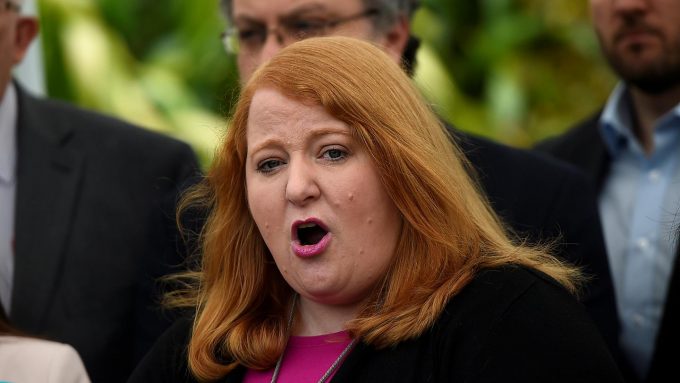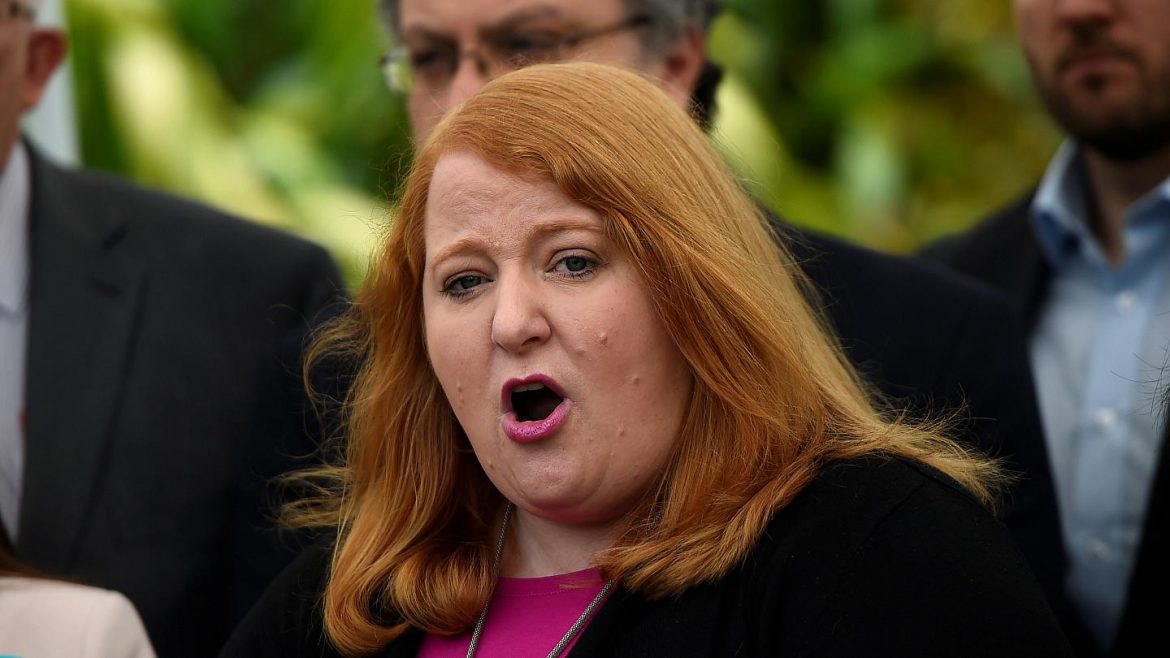
Justice Minister Naomi Long
Speaking to BBC Radio Ulster’s Nolan Show, Naomi Long said people had gone months without seeing friends and family.
Social bubbles are a concept that allows a person to form a ‘bubble’ with one other household.
They will come to effect this Saturday, June 13 in England.
Mrs Long said there was an agreement in the executive about the action, but that its timing was being taken into account to try to reduce and balance risk.
The introduction of social bubbles here will depend on the rate of reproduction (R rate) of the Coronavirus in the community.
On Wednesday, the Department of Health reported no deaths in hospital settings for a fourth day in a row.
The Justice Minister said the agreement over social bubbles by the Executive was an acknowledgement that social reintegration was matching action being taken to reopen business.
“It would be a bit weird if you were able to meet your best friend at the shops, but you couldn’t meet them at your home,” she said.
“We want to make sure there aren’t those anomalies going forward. But also to try and give support to people who are maybe living alone, and might be quite isolated.”
Who can you share a bubble with?
In England from this Saturday a single adult living alone (or with children under the age of 18) will be able to form a “support bubble” with one other household (of any size).
This means they can act as if they are one household – for instance, they can go into each other’s houses, stay the night and don’t have to maintain social distancing.
You can only have one bubble per household – you can’t change the arrangement and add other households.
People who are already shielding – with underlying health conditions – will not be able to take part.
Some examples of those who would be able to benefit from “bubbling” are:
A grandparent living alone would be able to form a support bubble with one of their children, which means they could go to see them and interact with their grandchildren
A single parent could form a support bubble with a parent or friend so they could interact as normal
Two single people who each live alone could form a support bubble
A couple who don’t live together could form a bubble if they both live alone or if one of them lives with someone else (in this case the person who they live with wouldn’t be allowed to form another bubble).
If anyone in the bubble gets coronavirus symptoms all of the people in the group will have to self-isolate for 14 days.
Tags:





